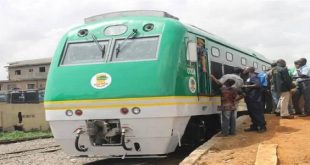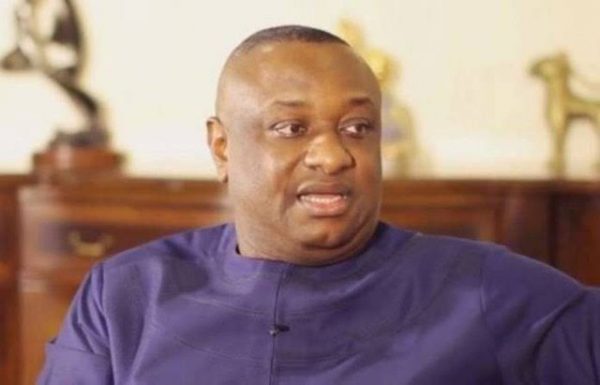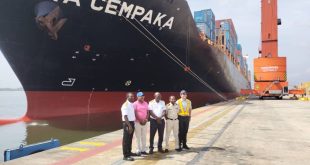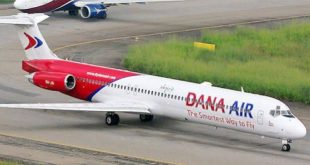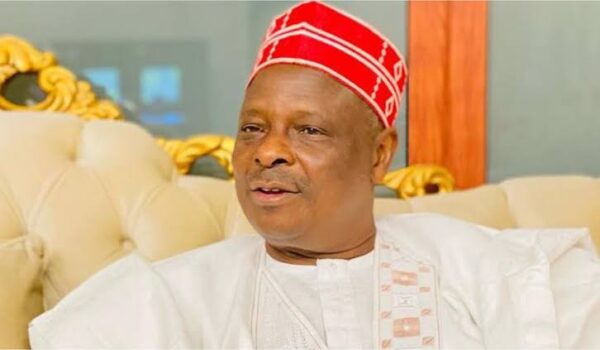
Maritime stakeholders have called for the separation and independent existence of the Council For the Regulation of Freight Forwarding in Nigeria ( CRFFN), from the Transportation Ministry in order for it to concentrate on its role of regulating freight forwarding practice and curb some noticeable anomalies in the profession.
This call was contained in a communique issued at the end of the Town Hall meeting between maritime stakeholders and the New Nigeria People’s Party (NNPP) Presidential Candidate, Senator Rabiu Musa Kwakwanso in Lagos, last week.

Participants at the one-day meeting organised by Prime Maritime Project, lamented the comatose state of the CRFFN which has made it ineffective and unable to provide the necessary leadership direction needed as a regulatory body to curtail the excesses of charlatans in the industry.
According to the communique, participants complained that the supervisory Ministry of Transportation have become self- serving with the attendant consequences of confusion,corruption ,hijack of fiscal and economic incentives and spiralling port trade high costs.

Apart from the above identified challenges , participants were of the view that operators of the Nigeria Customs Service ( NCS),is bogged down by obsolete Customs and Excise Management Act (CEMA), and stifling archaic legislation which focuses more on revenue generation instead of trade facilitation. They therefore called for immediate review of the 1954 CEMA.

Participants at the Town Hall meeting also accused the federal government of abuse of the Coastal and Inland Shipping Trade Act, otherwise known as the Cabotage Law, noting that the non- implication of the Cabotage law has given foreigners the latitude to encroach into what otherwise should be the preserve of local content jurisdiction.
” As a result of lack of political will,the implementers of the law have been so lax with the execution of the Act, that foreigners have continued to hold sway in the business.” It said. They stated that for “Pecuniary interests ,the implementers have latched on the “waive clauses”‘ window of the Act to allow continue foreign dominance of the trade.”
It was therefore resolved according to the communique that “Any incoming government should implement the Cabotage law without which Nigeria will continue to play second fiddle in coastal trade.”
On the Cabotage Vessel Financing Fund (CVFF), participants adopted a similar stance while asking the Nigerian Maritime Administration and Safety Agency (NIMASA), to facilitate the disbursement of the fund which have accumulated to $300 million since 2003.
The eight- point communique also stated the followings: That the incoming government should outlaw multiplicity of charges which has made Nigerian ports the most expensive in the world, leading to some landlocked neighbouring countries which hitherto trades with Nigeria abandoning our ports for ports in Ghana and Benin Republic.
That NPA and private terminal operators must as a matter of urgency equip the port with needed modern infrastructure and up-to-date cargo handling equipment.
That an incoming president should complete the rehabilitation of the port access roads which has frustrated access into and out of the ports, causing a lot of congestion, while also raising the cost of evacuation of cargoes from the ports.
And also that the Eastern ports must be opened up, dredged and equipped to attract patronage to decongest the Lagos ports and widen the scope of shipping in Nigeria.
Participants at the meeting observed that the maritime sector encompasses the totality of activities that have to do with water or the sea, in its historical perspective. Noting that before the colonial administration shipping was thriving in Nigeria especially in the riverine areas of the Niger Delta such as Bonny, Bayelsa, Opobo, Ijaw, among several other areas and communities lining the inland waterways.
It was also noted that the maritime industry covers 850 kilometres of coastline and over 3,000 kilometre stretch of inland waterways,participants explained that while upland, there is also serious shipping businesses albeit without the benefit of seaports. Noting that maritime and shipping involves cargo handling, harbours and quay wall maintenance at the ports,adding that another segment of the maritime industry is the railways which also undertakes cargo handling at the terminals.
Apart from the huge organised maritime private sector, the communique noted that government agencies in the industry such as the Nigerian Ports Authority,(NPA) Nigerian Nigerian Maritime Administration and Safety Agency(NIMASA) Nigeria Customs Service (NCS) Nigerian Shippers’ Council(NSC), Nigeria Railway Corporation (NRC),etc, individually boasts of hundreds of thousands of players and operators.
It stressed that the sector is however bugged down by official corruption, poor administration and poor service delivery with a concomitant unwarranted high costs of trading.
Participants also expressed regret at the years of costly neglect of infrastructure, of administration, monitoring and poor compliance which they note have continued to raise the high cost of doing businesses.
They cited the example of the freight forwarding sub sector which they say have been dominated by foreigners.
Participants also bemoaned the absence of a national ocean carrier since the death of the Nigerian National Shipping Line (NNSL).
According to participants, “Another major disservice in the maritime industry is multiple taxation and charges of goods landed at our ports”. For instance, they complained that an importer pays import duty on an item, pays the value added tax (VAT) increased from 5.0 to 7.0 per cent, pays 7.0 per cent port development levy otherwise known as port surcharge; and that if the cargo is vehicle, the importer and agent contends with additional National Automotive Council (NAC) levy increased from 2.0 to 15 percent. All these they said hinder trade facilitation and makes the cost of doing business in the ports rather too expensive.
According to the organisers of the project, those aspiring to be presidents should showcase their campaign manifesto before the fifteen million maritime population and outline developmental blueprint for the industry, as the second largest national economy.
The Town Hall meeting saw maritime stakeholders take a unified stance on the need for any incoming administration to show commitment in tackling head – long all the observed holes in the administration of the sector. With over 15million voters, the maritime industry stakeholders have made it clear that they will back any candidate with clear cut policies meant to fix the port industry. They have therefore also made it crystal clear that those who do not possess the requisite blueprint to take the Nigeria Maritime industry to the next level will not be voted for.
Those in attendance at the Town Hall Meeting include, the NNPP Chairman, Prof. Rufai Ahmed Alkali;NNPP Chieftain and former DG Nigerian Maritime Authority now NIMASA, Galadima Buba; BOT Chairman Dr. Boniface Aniebonam; NNPP Niger State Governorship aspirant, Alhaji lbrahim Yahaya; Lecturer, Prof. Dele Badejo; Chairman of Occasion, Otunba Kunle Folarin; NNPP National Women Leader, Mrs. Mariam Bello; NNPP Deputy National Legal Adviser, Barr. Fred Akhokia; several party chieftains, a cross section of maritime stakeholders, party supporters and admirers, amongst others.
 MMS PLUS NG – Maritime, Aviation, Business, Oil and Gas News Online Newspaper with coverage in Maritime, Oil and Gas, Aviation, Power and Energy as well as Financial News
MMS PLUS NG – Maritime, Aviation, Business, Oil and Gas News Online Newspaper with coverage in Maritime, Oil and Gas, Aviation, Power and Energy as well as Financial News



